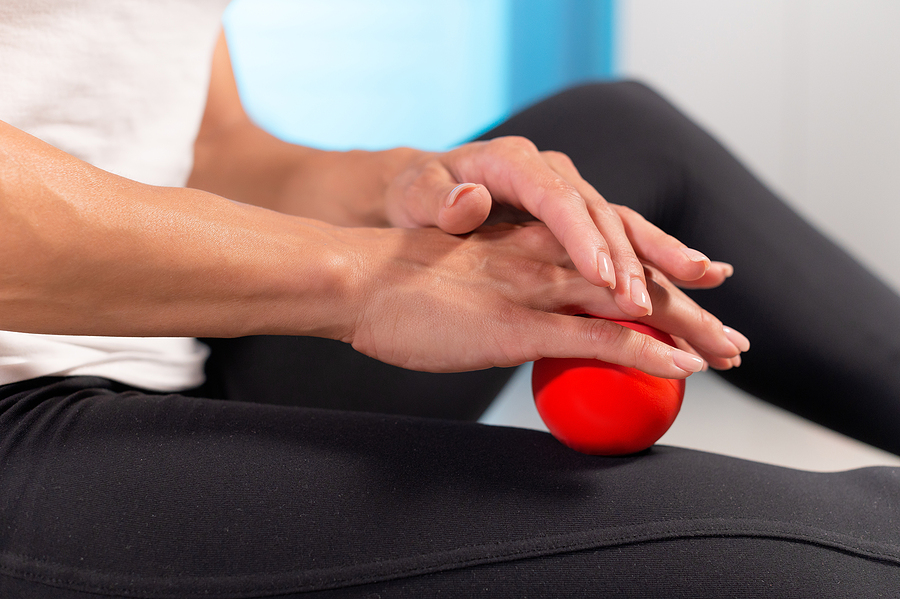How to give yourself a massage at home to aid muscle recovery
An expert explains you don’t need to book in for an expensive treatment
Nothing feels better than a massage when your muscles are feeling tight and sore, and now research suggests it might actually help with healing after a tough workout.
A new study by scientists at Harvard’s Wyss Institute for Biologically Inspired Engineering and John A. Paulson School of Engineering and Applied Sciences (SEAS) shows even mice benefit from some tender loving care to their little legs.
Having applied precise, repeated forces to injured mouse leg muscles, the team found they recovered stronger and faster than untreated muscles.
Massages feel good, but do they actually speed muscle recovery? Turns out, they do! Wyss and @hseas researchers applied precise, repeated forces to injured mouse leg muscles and found that they recovered stronger and faster. #RegenMed https://t.co/Bzdgst57h0
— Wyss Institute (@wyssinstitute) October 6, 2021
“Lots of people have been trying to study the beneficial effects of massage and other mechanotherapies on the body, but up to this point it hadn’t been done in a systematic, reproducible way,” says Dave Mooney, PhD at the Wyss Institute and SEAS.
While a custom-designed robotic system applied the pressure and showed a connection between mechanical stimulation and muscle fibre regeneration, we can’t all afford fancy gadgets or a masseur to help soothe our tired, achy muscles.
With this in mind, self-massage is a good way to relieve muscle soreness, plus you’re in control and can apply more or less pressure when necessary.

Matt Flanagan, CEO and sports health specialist at E-Bikes Direct explains how you can safely self-massage to help relieve the pain…
Neck and shoulders
It’s safe to massage your own neck and shoulders, however, as they’re vulnerable areas, care must be taken not to apply too much pressure as this can lead to soreness and aggravate any injured muscles even further. Neck and shoulder pain are often caused by overuse, lack of movement or poor posture and can be extremely uncomfortable.
How to massage your neck
Firstly, with either exercise make sure you are not overstretching your neck, as this can cause pain and further discomfort. Straighten your neck and back and locate the areas on your neck which require massage. Press firmly with your fingers and gently move into circular motions, first clockwise then anticlockwise. Do this for up to five minutes.
Place your left hand on the neck muscle behind your left ear and apply gentle pressure to the area. Make sure your fingers/hand isn’t moving and instead slowly turn your head to the right while still applying the pressure. Repeat on the right side.
How to massage your shoulders
Place two or three fingertips from your right hand on the back of your neck, where your neck and shoulders meet. Press firmly but carefully and release three times, then roll your fingers over the muscle, moving towards the base of your neck. Repeat with the left hand.
Lower back

With a tennis/massage ball: Position the ball between your lower back and a wall. Move your body either up and down, or side to side to find areas of tension. Apply stronger pressure against the ball to help relieve tension. Repeat as necessary.
Massaging without a prop: If you don’t have access to a small ball, or are out and about, you’re able to self-massage without this. Sitting cross legged on the floor with a straight back, place your thumbs on the flat bone at the bottom of your spine, moving your thumbs in small circular motions, moving up and down. Apply firm pressure on tense spots for a moment, release and repeat as necessary. You can do this in a chair if you need quick relief while working.
Legs and feet
How to massage your legs
With a tennis/massage ball: Sit up straight on a chair and place the ball under your thigh, under any tender spots and use your body weight to move the ball around. Start with clockwise then anti-clockwise movements, and repeat if necessary.
Without a prop: Wrap your fingers around your ankle and squeeze gently but firmly. Work your way up your leg, squeezing your muscles with your fingers. Continue up to your hip and repeat from the ankle if necessary.

How to massage your feet
With a tennis/massage ball: Great for those who are not as flexible. Either seated or standing, place the ball under your foot and roll it around, clockwise and anticlockwise. Adjust your body weight to change pressure.
Without a prop: Hold the top of your foot in one hand and rub the length of the arch, from heel to the ball, with your thumb, applying more or less pressure where necessary. Repeat if necessary.
Another method, without use of a prop: Using your thumb and forefinger, move each toe individually side to side, squeezing and extending each toe gently.
The Press Association
Latest posts by The Press Association (see all)
- 3 easy Mary Berry recipes to make this season - November 22, 2024
- In Pictures: Party stalwart kept New Labour in touch with traditional supporters - November 21, 2024
- 6 easy indoor exercises to try this winter – and why they are good for you - November 19, 2024
- Martin Clunes: I can’t afford to retire – I’ve got too many horses - November 19, 2024
- How to avoid plant losses, flowering disappointments and container catastrophes - November 17, 2024





















